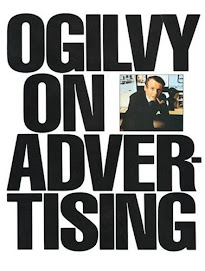here is a simpler way to read it - yup, google now claims they can search 1 Trillion unique URLs. that's a lot of zeros that we really don't care to read about. that number was so hard to type and i suppose for you to read that we typed and read that using our fingers to make sure we don't miss a zero.
but that's how huge google is. that's a lot of ads. and that number officially puts the earth out of this world. the internet has truly put us in a different age
.
just a bit of trivia with a lot of zeroes for you today.
-------------
Google Index Reaches 1 Trillion URLs
by Thomas Claburn
Jul 25, 2008 05:23 PM
Three years after Google (NSDQ: GOOG) declared that its index was three times larger than any other search engine and then declined to cite a specific number to support that claim, it was widely believed that Google had tired of index one-upmanship and that it would no longer be measuring its index.
 Well, Google has its yardstick in hand once again.
Well, Google has its yardstick in hand once again.Two Google engineers on Friday said that Google's index of the Web now contains 1 trillion unique URLs.
That's a lot of URLs. However, there's a lot of chaff in there. Consider that "Google" alone returns 2,740,000,000 Google search results, "Yahoo" returns 2,930,000,000, and "eBay" returns 1,080,000,000. Add up the number of results generated by searching for the top 100 keywords and you'd have a significant fraction of 1 trillion.
In 1998, when Google opened for business, it had 26 million URLs. By 2000, it had reached 1 billion. In 2005, Google claimed it had more than 8 billion Web pages in its index, at least until it took the index count off its home page. In 2008, Google's measure of the Web is 1 trillion Web pages.
So it appears that Google's index is exploding with new Web pages. From 2000 to 2005, Google's index grew by a factor of 8. From 2005 to 2008, it grew by a factor of 125.
There you have evidence of the information explosion that Google and other companies are trying to fight through the Information Overload Research Group.
Maybe.
Google software engineers Jesse Alpert and Nissan Hajaj admit that they don't really know how many unique Web pages there are. And they acknowledge that Web URLs are essentially infinite because dynamic page generation for things like future calendar months means there's always another page to crawl. "But we're proud to have the most comprehensive index of any search engine," they say in a blog post.
So forget the math. The numbers are too slippery. Really, this is about bragging rights.













No comments:
Post a Comment
we encourage everyone to post a comment, their own analysis or views on any of the posts in WAWAM!
we have put all comments to be moderated to make it easy to monitor them and so that WAWAM! can respond to them.
we will not tolerate rudeness or idiocy in this blog. comments that contain personal attacks on any person or posters in this blog will be rejected.
otherwise, we will allow all other comments.